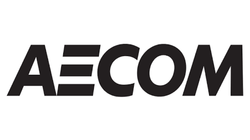KZN flooding a ‘wake-up call’ for integrated planning and resilient infrastructure
Parts of KwaZulu-Natal received over 300 mm of rainfall in a 24-hour period from 11 to 12 April, and close to 400 mm, including the preceding rain in the days leading up to the floods. “It was a 100-year rainfall event for some areas. That is just in terms of the rainfall itself, which cannot be correlated directly with the flooding. Once everything is saturated, the runoff is much higher. Then there is the secondary impact of landslides and erosion that can change the natural runoff characteristics, resulting in unpredictable impacts that can cause further significant damage to infrastructure,” explains Timothy Hotchkiss, an engineer at AECOM’s Durban office specialising in flood management and the design of water-related infrastructure.
While the entire province was impacted, the worse-hit areas were the eThekwini Metropolitan Municipality and the districts of iLembe, Ugu, King Cetshwayo, and uMgungundlovu. Informal settlements close to rivers and waterways were severely affected, with numerous dwellings swept away and nearly 450 lives lost to date. The flooding disrupted fuel and food supplies.
The torrential rain caused extensive damage to houses, businesses, roads, bridges and water, electricity, rail, and telecommunications infrastructure. Cabinet declared a national state of disaster on 19 April. KwaZulu-Natal Premier Sihle Zikalala estimates it will cost about R5.6 billion to repair the damage to road infrastructure alone. While Durban Port, one of the largest and busiest shipping terminals on the continent, has since reopened, there is a massive backlog of 8 000 to 9 000 containers.
“We will be involved with a lot of the repair and rebuild work, especially in terms of bulk infrastructure such as roads and water networks,” notes Hotchkiss. The company has carried out flood mitigation work for a major automotive manufacturer in the region in conjunction with the metro.
“While eThekwini is proactive from a catchment planning perspective, there are still many challenges, and this event was really way beyond what could have reasonably been planned for,” says Hotchkiss. “For us as AECOM, it is important to take a holistic view of the flooding in terms of its social and environmental impact.”
It is clear from the extent of the damage that properly planned areas, and areas with well-maintained indigenous vegetation, fared much better than areas where there is a lot of uncontrolled development. A lack of integrated planning in terms of electricity, water, transportation networks and stormwater drainage means that the impact of any extreme weather event is likely to be that much greater.
“It is a countrywide issue. There is very little holistic planning around any of these critical factors. Unfortunately, this has contributed significantly to what we have seen happen in KwaZulu-Natal. We are paying the price for years of under-planning and a lack of investment in maintenance and infrastructure,” says Green.
The immediate priority is to ensure that the water supply in eThekwini is fully restored, followed by the electricity and road networks. In some cases, the authorities have consultants and contractors on frameworks and term tenders, and therefore may be able to respond relatively quickly to some of the immediate and less complicated infrastructure repairs. However, on the whole, emergency procurement will need to be put in place. “We have seen before that this does not always have the desired outcomes. We need to mobilise as quickly and as effectively as possible,” says Green. Consulting Engineers South Africa (CESA) has stated that its members are on standby to provide any assistance required.
REFERENCES
‘KZN ROAD REPAIR BILL ESTIMATED TO COST R5.6 BILLION, SAYS ZIKALALA’
https://ewn.co.za/2022/04/18/kzn-road-repair-bill-estimated-to-cost-r5-6-billion-says-zikalala
‘KZN floods: Durban port clogged with debris, faces backlog of 8 000 containers – Gordhan’ (19 April 2022)
‘President Cyril Ramaphosa: Declaration of a national state of disaster to respond to widespread flooding’ (18 April 2022)
Ends
Notes to the editor
To download hi-res images for this release, please visit http://media.ngage.co.za and click on the AECOM link to view the company’s press office.
About AECOM
AECOM is the world’s trusted infrastructure consulting firm, delivering professional services throughout the project lifecycle – from planning, design and engineering to program and construction management. On projects spanning transportation, buildings, water, new energy and the environment, our public- and private-sector clients trust us to solve their most complex challenges. Our teams are driven by a common purpose to deliver a better world through our unrivalled technical expertise and innovation, a culture of equity, diversity and inclusion, and a commitment to environmental, social and governance priorities. AECOM is a Fortune 500 firm and its Professional Services business had revenue of $13.3 billion in fiscal year 2021. See how we are delivering sustainable legacies for generations to come at aecom.com and @AECOM.
AECOM Contact
Faye Bastow
Director, Marketing & Communications, MEA
Strategy & Growth
Phone: +971-2-613-4410
Cell: +971-56-996-3851
Email: faye [dot] bastow [at] aecom [dot] com
Media Contact
Rachel Megkwe
NGAGE Public Relations
Phone: (011) 867-7763
Fax: 074 212 1422
Cell: 082 562 5088
Email: rachel [at] ngage [dot] co [dot] za
Web: www.ngage.co.za
Browse the NGAGE Media Zone for more client press releases and photographs at http://media.ngage.co.za

